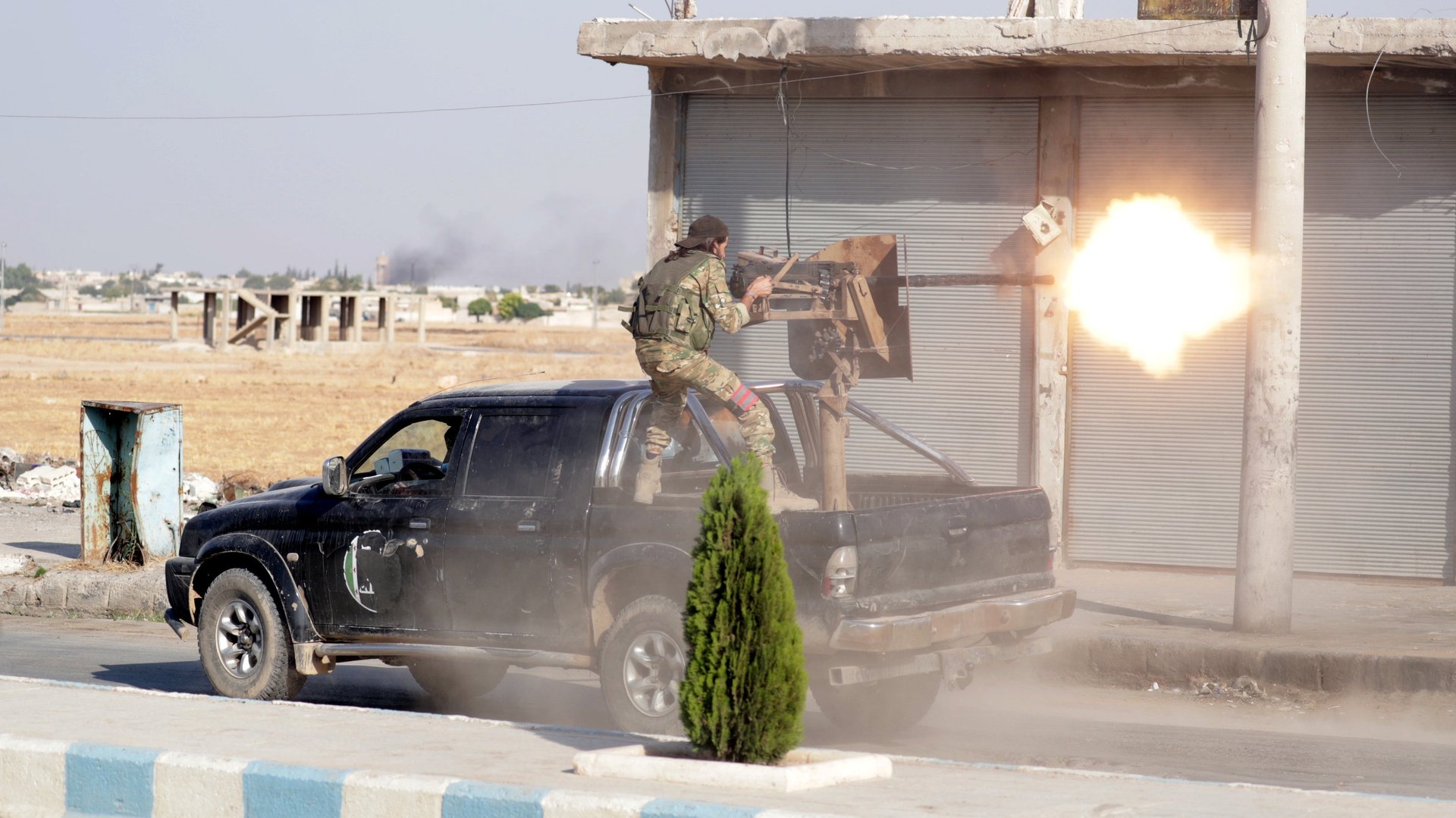Trump’s Syria retreat blamed for murder of pro-democracy leader
A Syrian politician who was reportedly dragged from her car and murdered by Turkish-backed paramilitaries yesterday is fast becoming a symbol of US failures in the Middle East.


A Syrian politician who was reportedly dragged from her car and murdered by Turkish-backed paramilitaries yesterday is fast becoming a symbol of US failures in the Middle East.
Hervin Khalaf, whose name is sometimes transliterated as Hevrin Xelef, was a 35-year-old human rights activist and the secretary-general of the Future Syria Party, a political group formed last year in territory liberated from ISIS in northern Syria. The party was an attempt to unify Arab and Kurdish groups in a pluralistic vision for the war-torn country’s future, hoping to replace dictator Bashar al-Assad with a multi-ethnic democracy.
The Syrian Observatory for Human Rights and the Syrian Democratic Forces (SDF) said that a convoy including Khalaf was ambushed by Islamist forces advancing ahead of Turkish troops into Syria. Her driver was killed, and Khalaf was reportedly tortured and executed. A graphic video purportedly showing the circumstances of her death is circulating on social media, but Quartz has been unable to confirm its authenticity.
There are widespread reports of similar executions of civilians and captured prisoners that are being called war crimes. The US State Department issued a statement calling the news of Khalaf’s death “troubling.”
Last week, Donald Trump announced the unilateral withdrawal of American forces in northern Syria in order to allow Turkey’s armed forces to enter the country. Turkey views Kurdish groups like the Kurdish Democratic Union Party (PYD), which played a major role in driving Islamists out of northern Syria with the backing of US airpower, as a threat to its own internal stability. There is a significant Kurdish population in Turkey.
Some saw the Future Syria Party as a front for a US political agenda in Syria, while others, particularly the Turkish government, saw it as a branch of the PYD. Its leaders insisted that “what differentiates us from other parties is that we believe there will be no solution [to Syria’s civil war] with a religious or a national vision, but [instead] through citizenship and patriotism.”
Trump’s decision to retreat was widely seen as a green light for the ongoing Turkish incursion. The largely Kurdish SDF and Americans who fought alongside them say the decision was a betrayal, and struggle to see even in terms of cold realpolitik what the benefit to US interests could be.
Some are turning to the Trump family’s significant business interests in Turkey as an explanation for the decision. Trump’s first national security adviser, former general Michael Flynn, was a paid agent of the Turkish government.
The brutal death of Khalaf, an unarmed civilian calling for liberal democracy, has been laid on the doorstep of the White House. Brett McGurk, the former US envoy to the region, specifically referenced Ivanka Trump, the president’s daughter and senior adviser, who has often paid lip service to human rights as a justification for US foreign policy. She also played a role in her family’s business dealings in Turkey, thanking Erdogan for visiting a real estate event in 2012.